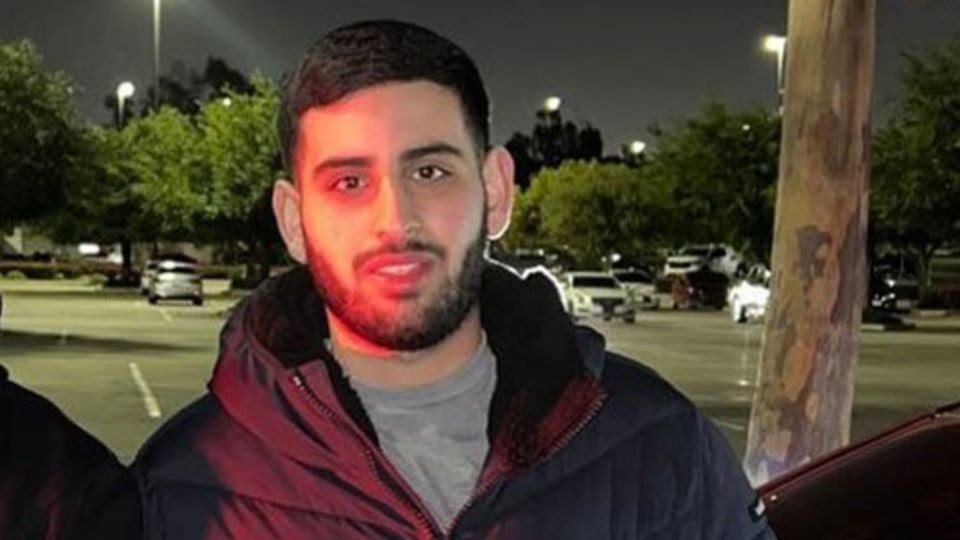Headline
Nigeria’s Public Officials Received ₦721bn Bribe In 2023 – UN, NBS
Published
1 year agoon
By
Editor
IYC Commends INEC For Delineation Of Warri Fed. Constituency, Warns Saboteurs To Steer Clear
A newly released report by the Nigerian Bureau of Statistics (NBS) in collaboration with the United Nations Office on Drugs and Crimes (UNODC), has said Nigerian public officials received nothing less than ₦721bn as bribes in 2023.
The result was based on a survey conducted with the UNODC.
According to the report “Corruption in Nigeria: Patterns and Trends”, published by the NBS on Thursday, the ₦721bn paid in bribes amounted to about 0.35 per cent of Nigeria’s Gross Domestic Product (GDP).
According to the survey, the average cash bribe was ₦8,284, an increase from an average of ₦5,754 in 2019.
“According to the 2023 survey, the average cash bribe paid was 8,284 Nigerian Naira. While the nominal average cash bribe size increased since 2019 (from NGN 5,754), this does not account for inflation. The inflation-adjusted average cash bribe in 2023 was 29 per cent smaller than in 2019 in terms of what could be bought with the money.
“Overall, it is estimated that a total of roughly NGN 721 billion (US$1.26 billion) was paid in cash bribes to public officials in Nigeria in 2023, corresponding to 0.35 per cent of the entire Gross Domestic Product of Nigeria,” the report read in part.
The report indicates that 56 per cent of Nigerians interacted with a public official in 2023, down from 63 per cent in 2019.
Despite this reduction, bribery remains widespread, with an average of 5.1 bribes paid per bribe payer, totalling approximately 87 million bribes nationwide. This is a decrease from the 117 million bribes estimated in 2019.
READ ALSO: [JUST IN] Alleged N33.8b Fraud: Court Grants Bail To Ex-power Minister
On payment mode, the report noted that over 95 per cent of bribes were paid in monetary form (cash or money transfer) in 2023.
It said public officials were more likely to demand bribes while private sector actors included doctors in private hospitals, which increased from 6 per cent in 2019 to 14 per cent in 2023.
Despite this rise, bribery in the public sector remains about twice as high, with public sector contact rates also being twice as high as those in the private sector.
In 2023, 27 per cent of Nigerians who interacted with a public official paid a bribe, a slight decrease from 29 per cent in 2019. Including instances where bribes were requested but refused, over one-third of interactions between citizens and public officials involved bribery.
Similarly, the report shows a growing trend of Nigerians refusing to pay bribes. In 2023, 70 per cent of those asked to pay a bribe refused at least once, with the highest refusal rates in the North-West zone at 76 per cent. All regions recorded refusal rates above 60 per cent. This indicates that Nigerians are increasingly standing against corruption.
According to the report, bribery is becoming less accepted in Nigeria. The percentage of citizens who view bribery requests as acceptable to expedite administrative procedures decreased from 29 per cent in 2019 to 23 per cent in 2023.
Fewer citizens reported suffering negative consequences after refusing bribe requests in 2023 compared to 2019. This suggests a growing empowerment among Nigerians to confront corrupt officials without fear of repercussions.
In 2023, 21 per cent of bribe refusers indicated they refused because they had other options. Normative concerns (42 per cent) and cost of living pressures (23 per cent) also played significant roles in their refusal to pay bribes.
Furthermore, not less than 60 per cent of public sector workers were hired due to nepotism, bribery or both between 2020 and 2023.
The report noted that six out of 10 successful candidates admitted to using either nepotism, bribery, or both to improve their chances of being recruited.
Specifically, 27 per cent of these candidates admitted to using only bribery, 13 per cent to only nepotism, and 19 per cent to both bribery and nepotism. On the other hand, 40 per cent of the candidates claimed to have secured their positions without resorting to any such means, based on data collected between November 2020 and October 2023.
The report read, “The selection process used to recruit public officials plays a crucial role in shaping the culture of integrity that should drive the civil service as well as ensure that recruits have the highest standards of professionalism and merit.”
However, the 2023 survey findings indicate that the public sector recruitment process requires closer monitoring, as almost half (46 per cent) of people who secured a job in the public sector in the last three years before the survey admitted that they paid a bribe to facilitate their recruitment – about 1.5 times the share found in the 2019 survey (31 per cent).
READ ALSO:
“The 2023 survey also found evidence that a considerable number of people recruited into the public sector secured their posts with the help of a friend or relative, many in addition to paying a bribe: of all successful applicants in the last three years before the 2023 survey, 32 per cent were helped by friends or relatives. Overall, in the three years before the 2023 survey, around 60 per cent of public sector applicants in Nigeria were hired as a result of nepotism, bribery or both – about 1.2 times the share found in the 2019 survey.”
The report also noted that the use of bribery is notably lower when the recruitment process includes formal assessments.
Specifically, 51 per cent of candidates were not formally assessed, and of these, a significant 53 per cent admitted to using bribery or nepotism to secure their positions.
Conversely, among the 49 per cent of candidates who underwent a written test or oral interview, the use of unethical means such as bribery or nepotism dropped to 41 per cent.
The report read: “The 2023 survey data show that approximately half (49 per cent) of those who secured a position in the public sector in the three years before the survey passed a written test and/or oral interview during the recruitment selection process. Importantly, the data suggest that the means of selection had a role in facilitating or preventing the use of illegal practices during recruitment. Among those who underwent an assessment procedure (written test / oral interview), 41 per cent made use of bribery, while the share was as much as 53 per cent among those who were not formally assessed.”
It was also disclosed that bribery is more common in rural areas, with rural residents paying an average of 5.8 bribes compared to 4.5 bribes in urban areas.
It was also disclosed that bribery is more common in rural areas, with rural residents paying an average of 5.8 bribes compared to 4.5 bribes in urban areas.
The report stated that corruption was ranked fourth among the most important problems affecting the country in 2023, after the cost of living, insecurity and unemployment.
It added, “This suggests relatively stable and high levels of concerns about corruption over time and compared to other concerns such as education or housing.
“Nigerians confidence in the government’s anti-corruption effort has been declining over time and across regions. While in 2019, more than half of all citizens thought that the government was effective in fighting corruption, in 2023, the share declined to lessons than a third of all citizens. The downward trend in the citizen’s confidence is observable across the entire country, with all six zones recording reductions of more than 10 percentage points between 2019 and 2023 in terms of the share of citizens who thought the government was effective in fighting corruption.”
You may like
Headline
Nigerian Man Jailed In US For $1.3m COVID-19 Fraud
Published
3 hours agoon
July 12, 2025By
Editor
A Nigerian man living in the San Gabriel Valley, Abiola Femi Quadri, was sentenced to 135 months in federal prison for defrauding California and Nevada out of $1.3m in COVID-19 pandemic unemployment and disability insurance benefits.
Quadri, 43, was caught submitting more than 100 fraudulent applications using stolen identities and using the money to build a nightclub and mall in Nigeria.
He was sentenced by United States District Judge George H. Wu, who also ordered him to pay $1,356,229 in restitution and a $35,000 fine.
This was contained in a press statement issued by the Public Information Officer, United States Attorney’s Office, Central District of California, Ciaran McEvoy, on Thursday, July 10, 2025.
READ ALSO:
Quadri is a Nigerian citizen who acquired permanent residency in the United States through what he described, according to court documents, as a “fake wedding” in messages to a woman who was not his wife.
He pleaded guilty on January 2 to one count of conspiracy to commit bank fraud.
The statement read, “Quadri withdrew the fraudulent unemployment and disability benefits at ATMs from 2021 until his arrest in September 2024 at Los Angeles International Airport, where he was scheduled to fly to Nigeria. Quadri sent at least $500,000 abroad during the scheme.
“He also paid for the construction of a 120-room resort hotel in Nigeria, the Oyins International, which includes a nightclub, a mall, and additional high-end amenities.
READ ALSO:JUST IN: UAE Imposes Fresh Visa Conditions On Nigerians, Bans Transit Visa
“Quadri failed to disclose his ownership of the hotel as required when completing his financial disclosure to the court.”
Investigators found on Quadri’s phone images of 17 counterfeit checks totalling more than $3.3m, along with messages about negotiating the checks.
Some of the checks were made payable to shell businesses held in the names of Quadri’s aliases.
California paid Quadri to provide daycare services to developmentally disabled children through his Altadena-based business, Rock of Peace.
READ ALSO:FG Moves To Evacuate Nigerians From Israel, Iran As Crisis Escalates
When agents searched Quadri’s residence, they found the children’s misappropriated food-aid debit cards.
The United States Postal Inspection Service, Homeland Security Investigations, and the California Employment Development Department Investigation Division investigated this matter.
Assistant United States Attorney Andrew Brown of the Major Frauds Section prosecuted the case.
Headline
Palestinian-American Beaten To Death By Israeli Settlers In Occupied West Bank
Published
9 hours agoon
July 12, 2025By
Editor
…another man shot dead
Israeli settlers killed a 20-year-old Palestinian-American man in the West Bank, according to the Palestinian Ministry of Health and an eyewitness, as settler violence against Palestinians ramps up in the occupied territory.
The twenty-year-old Sayfollah Musallet “was martyred after being severely beaten all over his body by settlers in the town of Sinjil, north of Ramallah,” the health ministry said in a statement on Friday.
The municipality of Sinjel said that Musallet died following a “barbaric attack” carried out by settlers as part of “daily assaults” on local residents. It alleged Israeli forces stormed the area at the same time as the settlers’ attack, obstructing the work of paramedics and volunteers.
A friend of the deceased man’s family told CNN he was with Musallet and took him to a hospital in Ramallah, adding the young man was an American citizen born in Tampa, Florida.
READ ALSO: Family Of Five Killed In Iranian Missile Strike After Fleeing Ukraine For Safety In Israel
Israel’s military said it was “aware of reports regarding a Palestinian civilian killed and a number of injured Palestinians as a result of the confrontation, and they are being looked into by the ISA [Israeli Security Agency] and Israel Police.”
Musallet’s family is demanding the US State Department lead an investigation into the incident.
“We are devastated that our beloved Sayfollah Musallet (nicknamed Saif) was brutally beaten to death by Israeli settlers while he was protecting his family’s land from settlers who were attempting to steal it,” the family said in a statement.
“We demand justice.”
The US State Department said in a statement to CNN that it is aware of reports of the death of an American in the West Bank, without providing a name.
READ ALSO: We Would Have Killed Iran’s Supreme Leader If Given Opportunity – Israel
“Out of respect for the privacy of the family and loved ones during this difficult time, we have no further comment,” a department spokesperson said.
Musallet ran a business in Tampa and had been in the West Bank since June 4 to visit family and friends, the family statement said.
A second Palestinian man died in the attack in Sinjel after he was shot in the chest by settlers, the Palestinian Ministry of Health said. Ten others were wounded in the same attack, it added.
Following the attacks, the Palestinian Ministry of Foreign Affairs criticised what it called Israel’s expanding settlement projects in the occupied territory and called for urgent action to hold the perpetrators of settler violence accountable.
READ ALSO: UK ‘Was Informed Of US Strikes’ On Iran, Plans Evacuating Briton Out of Israel
Israel has recently ramped up military operations in the West Bank, displacing tens of thousands of Palestinians and razing entire communities as it targets what it says are militants operating in the territory.
Multiple American citizens have been killed in the West Bank in the past few years, according to Palestinian officials and eyewitnesses, including a 14-year-old boy whom the Israeli military shot dead last April in what they described as a “counterterrorism operation.”
Israeli soldiers also shot dead a 26-year-old woman during a protest against an Israeli settlement in September 2024.
(CNN)
Headline
Japan’s Petabit: What To Know About Internet Speed That Can Download 67 Million Songs In A second
Published
13 hours agoon
July 12, 2025By
Editor
Researchers in Japan have broken the record for the fastest internet speed ever recorded: 1.02 petabits per second. That’s fast enough to “download 67 million songs in a second.”
Contents
How Fast is 1.02 Petabits Per Second?How Did Japan Make This Happen?
When Can the World Expect to Use This?
According to FirstPost, this new speed could let someone download the entire Netflix library almost instantly—or stream millions of 8K videos at once without any buffering.
To give some perspective, Japan’s new speed is around 16 million times faster than India’s average internet speed of 63.55 Mbps and 3.5 million times faster than the U.S. average.
How Fast is 1.02 Petabits Per Second?
READ ALSO:Google Maps: Obasanjo’s Library, Abia Tower, Emir’s Palace Among Nigeria’s Top Reviewed Places
A petabit is one million gigabits. So when researchers say they hit 1.02 petabits per second, they’re talking about a connection fast enough to transfer more than 100,000 HD movies in just one second.
This speed could technically download the full Netflix catalog in less than a second. Big game downloads, like the 150GB Call of Duty: Warzone, would finish in a flash.
According to Gagadget, the full English Wikipedia is about 100GB. At this speed, you could download it “10,000 times in just one second.”
Music platforms can’t even match the scale. Spotify says a minute of audio uses about 1MB. That means, “with Japan’s new speed, you could theoretically download 67 million songs in a second—that’s more than 1,27,000 years of continuous music.”
While these examples help show how fast this is, the real impact will likely be on emerging technology.
Things like cloud computing, AI, autonomous vehicles, and real-time translation depend on large volumes of data moving quickly. With speeds like this, data centers in different parts of the world could work together almost as if they were on the same local network. That would allow global AI systems to run with almost no delay.
How Did Japan Make This Happen?
The breakthrough came from Japan’s National Institute of Information and Communications Technology (NICT), working with Sumitomo Electric and European partners.
The team sent data over 1,800 kilometers—about the distance from Delhi to Goa—using a specially built fiber-optic cable.
Typical fiber cables send data down a single path of light. This new design packs 19 separate cores into a standard-sized fiber, which researchers describe as “a 19-lane superhighway” for internet traffic. It increases capacity without requiring totally new infrastructure.
READ ALSO:Venezuelan Deportees: US Embassy Gives Reason For Reducing Visa Validity For Nigerians
Sumitomo Electric developed the cable, while NICT and international researchers built the transmission system.
To deal with long-distance signal loss, they used advanced amplification and signal processing. The setup involved 19 loops of fiber, each 86.1 km long, with the signal passed 21 times. That totaled 1,808 km, and during the test, “180 individual data streams were sent at record-breaking speed and stability.”
When Can the World Expect to Use This?
Most home internet is still measured in megabits per second, not terabits, much less talking about petabits. We’re far from seeing these speeds in everyday life. That means using this speed is not anytime soon.
Still, the breakthrough is getting attention from telecom companies, infrastructure providers, and governments. This could help shape the future of undersea cables, national internet backbones, and next-generation networks like 6G.
It may take years to reach consumers, but the progress points toward a future where fast, high-capacity internet becomes standard—not something rare.
(FirstPost/Tribune)
- Anglican Church Bans Partisan Speeches By Politicians During Services
- Woman Dies After Falling Into 170-ft Well
- Bank Fraud: Court Orders Forfeiture Of Cash, Properties
- Court Orders Lagos LG To Vacate Deeper Life Church Land
- Court Sentences Two To Death For Ritual Killing In Ogun
- Four Sentenced To Death For Killing Driver In Bayelsa
- Bayelsa Poly Workers Protest Withheld June Salaries
- Lagos LG Poll: Why We Did Not Shut Border – Immigration
- Nigerian Man Jailed In US For $1.3m COVID-19 Fraud
- FG Secures 44 Fresh Convictions On Terrorism Financing
About Us
Trending

 Metro3 days ago
Metro3 days agoMysterious Bird Found Inside Auchi Poly Lecturer’s Office, Killed

 News5 days ago
News5 days agoBREAKING: FG Officially Releases Age Limit For Admission Into Tertiary Institutions

 News5 days ago
News5 days agoOPINION: APC’s Leprosy Versus ADC’s Scabies

 Politics4 days ago
Politics4 days ago‘The Man I Defeated 32 Years Ago Hasn’t Forgiven Me’ – Ita-Giwa Laments Discrimination Against Women In Politics

 Metro1 day ago
Metro1 day agoJUST IN: Psychiatric Hospital Staff Shot Dead In Benin

 Politics4 days ago
Politics4 days ago97 Lawyers Line Up To Defend ADC, Mark, Aregbesola Against APC’s ‘Fake Lawsuit’

 News2 days ago
News2 days ago‘I Feel Your Pain’ – Ighodalo Reacts To S’Court Verdict On Edo Guber Election

 News4 days ago
News4 days agoSyncope Or Fainting: What You Need To Know

 Headline4 days ago
Headline4 days agoFull List: 3 African Countries Ranked Among World’s Best Countries

 Metro14 hours ago
Metro14 hours agoMy Husband Grabs, Squeezes My Breasts Any Time He Wants Sex — Wife



















